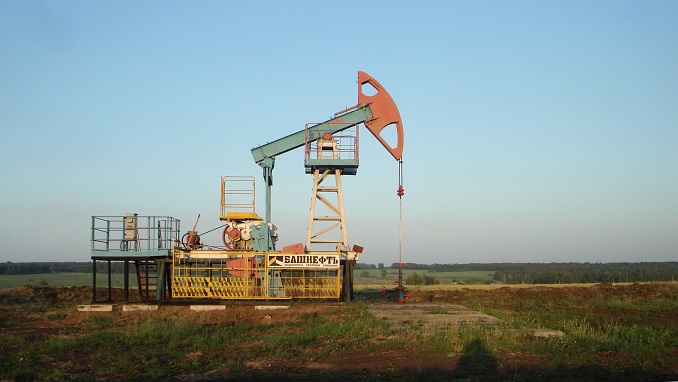Russia’s Finance Ministry expects the federal budget’s shortfall in oil and gas to amount to 55.8 billion rubles ($726 million) due to the drop in oil prices, a statement on the ministry’s website said, according to Gazeta.ru.
According to the ministry, in March the gap between the actually received oil and gas revenues and the expected volume was 22 billion rubles ($287 million).
In view of this, the Finance Ministry will allocate 77.8 billion rubles ($1.01 billion) for the sale of foreign currency from April 7 to May 12. During this period, daily sales volume will amount to 3.5 billion rubles ($45.6 million), the ministry said.
Meanwhile, the government is rewriting its budget to prepare for oil prices at $20 a barrel this year. To cope with lower budget revenues, the Russia will ramp up borrowing by about 1 trillion-1.5 trillion rubles ($13 billion-$19 billion) this year, people familiar with discussions who asked not to be named because talks are ongoing told Bloomberg. The Finance Ministry estimates the budget shortfall will total 3-4 trillion rubles this year, the sources said.
Putin has been keen to show that the economy of the world’s biggest energy exporter can cope with the 50% plunge in oil prices this year even as other oil producers struggle. President Donald Trump called for a coordinated production cut late Thursday, prompting attempts by the OPEC+ coalition to pull together a meeting of its members.
A nationwide shutdown starting this week is adding an extra strain on the economy, prompting calls for increased spending.
“If the forecasts of a 15-20 million barrel reduction in demand turn out to be right, then no production cut will help raise oil prices,” said Kirill Tremasov, head of research at Loko-Invest in Moscow and a former Economy Ministry official. “The Russian government is doing the right thing, preparing for difficult times and low oil prices. There are no other options.”
The Finance Ministry didn’t respond to a request for comment.
Urals crude, Russia’s export blend, touched $11 a barrel earlier this week, before a market rebound following Trump’s comments. Average oil prices below $20 a barrel could equate to a budget deficit of 2% of gross domestic product this year, according to Citigroup Inc.












